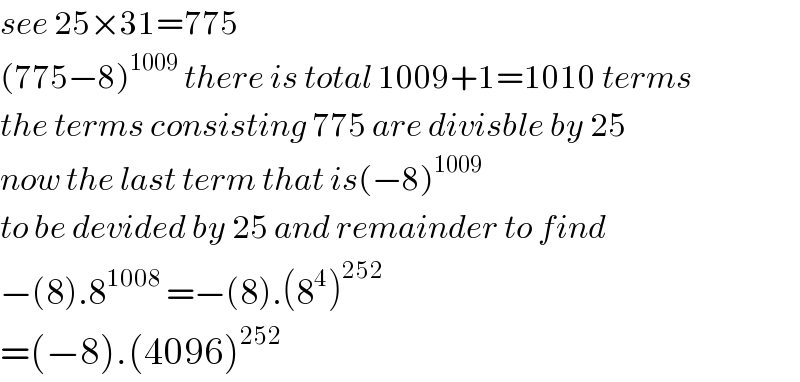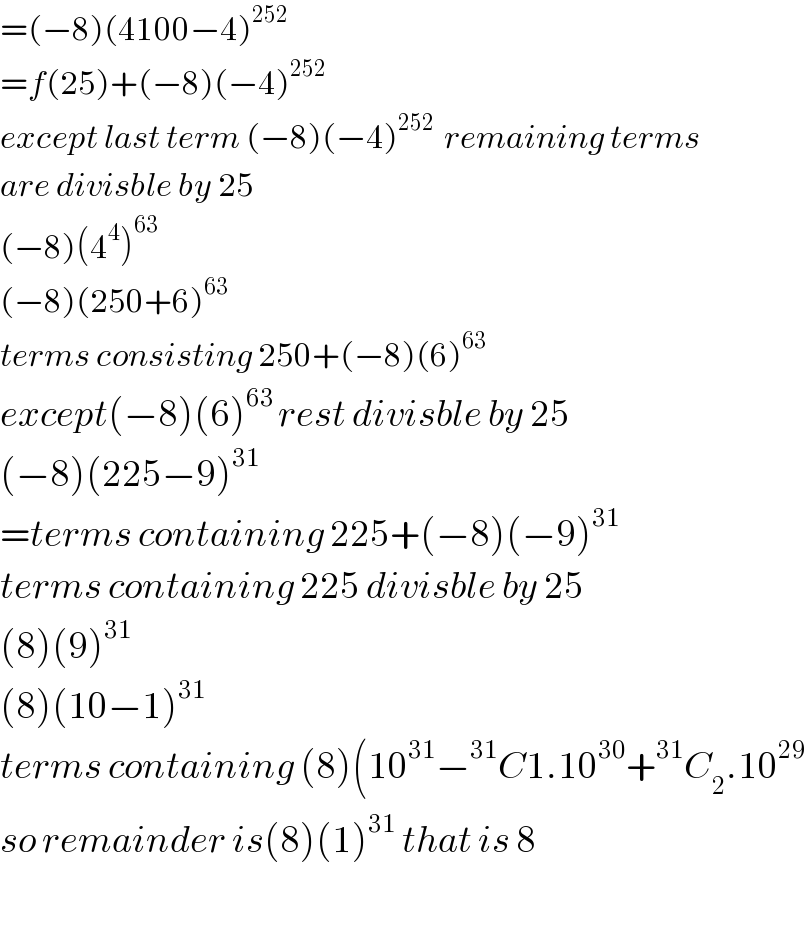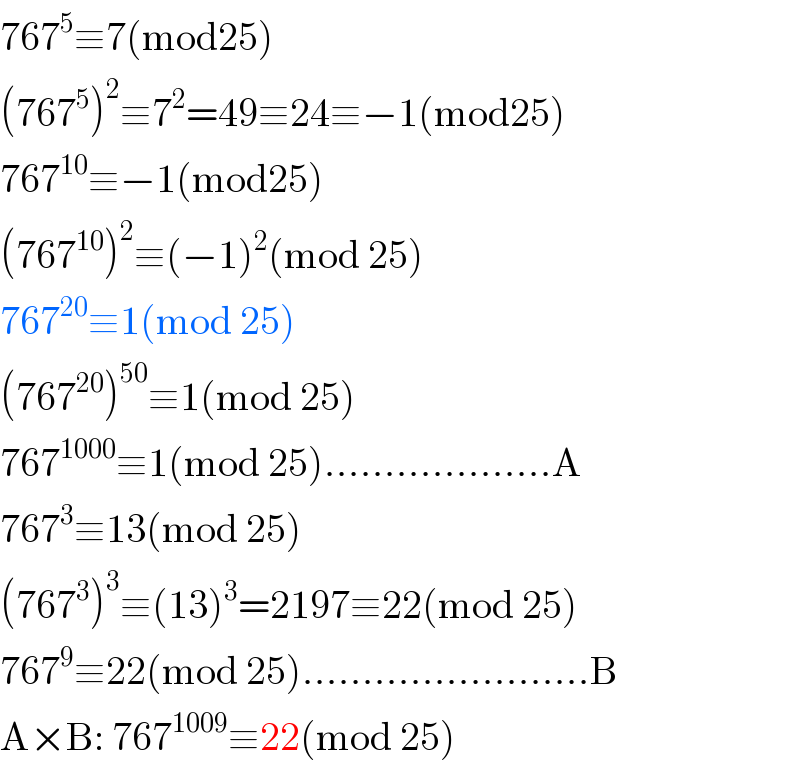
Question and Answers Forum
Question Number 34140 by NECx last updated on 01/May/18

Answered by tanmay.chaudhury50@gmail.com last updated on 01/May/18

Commented by tanmay.chaudhury50@gmail.com last updated on 01/May/18

Answered by Rasheed.Sindhi last updated on 04/May/18

Commented by Rasheed.Sindhi last updated on 09/May/18

